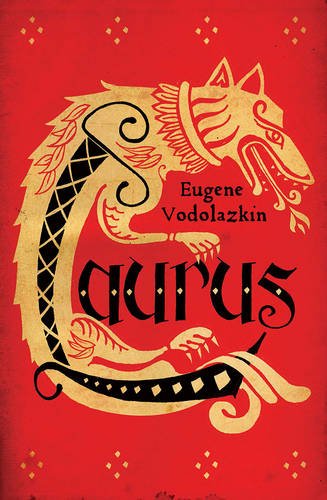Timeless tale of a medieval saint
 |
| Laurus by Eugene Vodolazkin. Oneworld Publications (Oct. 13, 2015) |
A novel about the life of a 15th-century Russian monk might sound an unlikely bestseller, but Eugene Vodolazkin’s extraordinary tale Lavrus became a literary sensation, won Russia’s Big Book award in 2013, and was shortlisted for numerous other prizes. This fall it’s published in English.
Exploring the nature of time
So what is the appeal? Vodolazkin’s spiritual odyssey transcends history, fusing archaism and slang to convey the idea that “time is a sort of misunderstanding.” Towards the end, the eponymous hero “Laurus”, a medieval doctor, holy fool, pilgrim and - finally - hermit, is leaning on an old pine tree. The ants are swarming over the bark and through the monk’s beard, embodying the idea that he has almost become part of the forest he lives in. The image is typical of Vodolazkin’s poetic vision.
The forest is full of “creatures for whom home is a leaf and life is a day.” Sudden shifts
The admixture of ye olde
A transcendent worldview
Laurus starts out as Arseny, born in 1441 near the Kirillo-Belozersky monastery. Orphaned, he learns herbal lore from his grandfather Christofer. Vodolazkin’s day job, as a medieval historian, means he is well placed to add plenty of authentic, plague-ridden details.
The elder who gives Laurus this name (his last of four names) sees it as apt for an aging healer because the laurel tree is evergreen and medicinal. Laurus is both the word for “laurel” and the name of a Christian martyr.
The young Arseny’s medical skill could not save the woman he loved, and her death is the catalyst for everything that follows. In a recent interview, Vodolazkin compares this part of the plot with Dostoevsky’s Crime and Punishment. The spiritual and psychological elements of Dostoevsky’s work have clearly been influential, and – although he sees his own novel as “unprecedented” - Vodolazkin does have parallels among other postmodern, Russian authors.
He attempts to convey the idea that love exists
At times Vodolazkin’s variation on the medieval “lives of the saints” can seem rambling or episodic, but it is always rich in ideas. Vodolazkin explores multifaceted questions of “Russianness” and concludes, like the
All rights reserved by Rossiyskaya Gazeta.
Subscribe
to our newsletter!
Get the week's best stories straight to your inbox